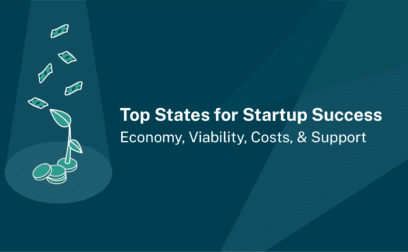TABLE OF CONTENTS
Page written by Chris Godfrey. Last reviewed on April 22, 2025. Next review due October 1, 2026.

Farm grants can provide crucial financial support to farmers and organizations that operate in the US agricultural industry. Provided by Government departments, corporations, foundations and other organizations, farm grants are effectively free money. There is no need to repay the funds if you spend them where you said you would. Use your farm grant to buy agricultural land and property as well as cover other costs such as livestock, equipment, vehicles, seeds, feed and more.
Key benefits of farm grants include:
Swoop helps farmers explore a range of funding solutions, including grants when available. We can match you with the best funding opportunities for your business.
There are many types of farm grants, each with varying award amounts, eligibility criteria, and funding purposes. Below are some of the top grants available to farmers in the U.S.
While government grants can be competitive, don’t let that discourage you! A wealth of other funding opportunities exists for US farmers, including flexible business loans, valuable tax credits, and affordable low-interest options. Swoop is your one-stop platform to explore all these possibilities. Ready to see what’s available?
The US Department of Agriculture’s Patrick Leahy Farm to School Grants are designed to help state, regional, and local organizations as they initiate, expand, and institutionalize farm to school efforts – which is a fancy way of saying ‘we connect kids to farmers’.
If you’re an innovator in the agricultural industry, the Farm Bureau Ag Innovation Challenge may be the perfect fit for you. Open to startup farming businesses that are bringing new solutions to the many challenges faced by the US agricultural sector
The Food Animal Concerns Trust (FACT) provides Fund-a-Farmer Grants, which are aimed at improving farm animal welfare and supporting the expansion of humane farming practices.
The Sky High Farm Grants aim to extend the existing agricultural circle by helping farmers and groups who are often excluded from traditional farm and business funding.
The National Young Farmers Coalition offers the Young Farmer Grant Program.
Swoop connects farmers with a range of funding solutions – including grants where available. Register to explore your options.
There are more ways than one for farmers to fund their operation. Business loans can fill the gap if your grant award is too small or if your grant application was not approved:
See if you qualify for a business loan
If your farm is waiting on payments from customers, invoice factoring may help you quickly access cash flow without having to wait for invoices to be paid.
If you need new machinery or farm equipment, equipment financing allows you to finance agricultural tools and machinery needed for your operations.
See if you qualify for equipment financing
For farms looking to purchase or expand agricultural properties (including income-producing properties such as factories, offices and farms), a commercial real estate loan (also known as commercial mortgages) could be the best option.
Commercial real estate loans are similar to the residential mortgages used to buy homes, they differ in some key areas. Click here to learn more
If you are building or expanding farm structures like barns, silos, or processing facilities, commercial construction loans can provide the necessary capital.
The U.S. Small Business Administration (SBA) offers various loan programs for farmers, including options to help finance growth and operational needs.
See if you qualify for an SBA 7a loan
Ready to explore which funding options are right for your farm? Click here to get started.
💡 Beyond grants: Discover a wider world of funding, including loans, tax incentives, and private investment opportunities tailored for US agriculture
📢 Access available capital: Get matched with the funding solutions that best fit your farm’s specific needs and goals in the current market
🔔 Never miss an opportunity: Stay informed with alerts on new grants and financial programs relevant to US farmers.
Don’t let fluctuating grant availability hold you back. Swoop simplifies the process of finding and securing the right funding to help your business thrive.
Chris is a freelance copywriter and content creator. He has been active in the marketing, advertising, and publishing industries for more than twenty-five years. Writing for Wells Fargo Bank, Visa, Experian, Ebay, Flywire, insurers and pension funds, his words have appeared online and in print to inform, entertain and explain the complex world of US consumer and business finance.
Swoop promise
At Swoop we want to make it easy for SMEs to understand the sometimes overwhelming world of business finance and insurance. Our goal is simple – to distill complex topics, unravel jargon, offer transparent and impartial information, and empower businesses to make smart financial decisions with confidence.
Find out more about Swoop’s editorial principles by reading our editorial policy.
Related pages
Funding available for farmers
See if you qualify!
Join the 95,000+ businesses just like yours getting the Swoop newsletter.
Free. No spam. Opt out whenever you like.
Kingfisher Way, Silverlink Business Park, Newcastle upon Tyne, NE28 9NX, UK
View in Google Maps35 Bull Street, Lewis Building, Birmingham B4 6AF, UK
View in Google MapsAberystwyth Innovation and Enterprise Campus
Gogerddan Campus
Aberystwyth University
Ceredigion
SY23 3EE
Dogpatch Labs, The CHQ Building, Custom House Quay, Dublin, Ireland
View in Google MapsSuite 801, Level 8, 84 Pitt Street, Sydney, NSW 2000, Australia
View in Google Maps43 W 23rd St, New York, NY 10010, United States
View in Google Maps21 Dreyer Street, Cape Town, South Africa, 7708
View in Google MapsClever finance tips and the latest news
Delivered to your inbox monthly
Join the 95,000+ businesses just like yours getting the Swoop newsletter. Free. No spam. Opt out whenever you like.




